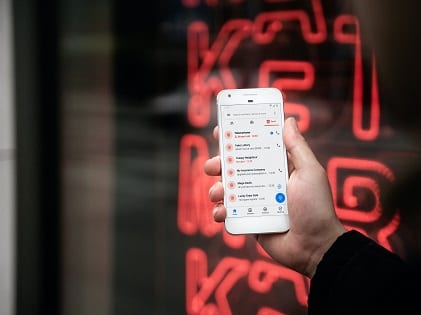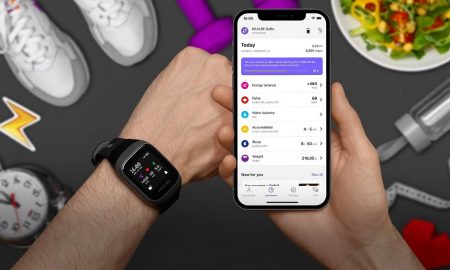
Health Insurance Scams You Need to Watch Out For!

 The well-being of your loved ones is paramount. However, while you’re trying to safeguard them and yourself, you might encounter quite a few scammers trying to take you for a ride—one such space where scammers thrive in the health insurance industry. As most people are clueless and paranoid about finding the right healthcare cover for themselves and their families, these scammers take them for a ride.
The well-being of your loved ones is paramount. However, while you’re trying to safeguard them and yourself, you might encounter quite a few scammers trying to take you for a ride—one such space where scammers thrive in the health insurance industry. As most people are clueless and paranoid about finding the right healthcare cover for themselves and their families, these scammers take them for a ride.
They target unsuspecting people looking for insurance and end up making them pay through their noses for policies. However, the worst part is, you might not even get an insurance cover at the end of it all. In this article, we explore the popular health insurance scams you need to be wary of, and how you could spot a scammer. It would not just save you money but would ensure you have the right health insurance cover too.
New Insurance Charges
The government does have assisters or navigators who can help you identify the right health insurance program and plan. However, they cannot charge you even a penny for their service. Honestly, you can get an insurance policy even without their assistant. However, scammers who pose as a government-appointed agent might scare you into believing that you would face a penalty for not approaching them sooner. They might also make you pay a hefty fee for their service. However, that’s not the scariest part yet. Most of these “agents” ask you to share your personal information, both medical and financial, and take the scam further. Besides identity theft, you also risk losing your money.
Another popular scam that falls under the same bracket of a new health insurance policy is the medial card charges. According to the federal norms, your insurance provider cannot make your policy null and void just because you did not renew your card. If you do get a call and they seek your personal information, suggest that they call you back at a different time, get in touch with your insurance provider in the meantime, and report the scammer to the authorities.
The Health Department Verification
 Well, this one is a classic. Most of us have got a “call from the authorities.” However, most of them are from scammers trying to pose as our bank officials who need details of our card and account to provide special offers. However, the scam is now moving beyond the banking sector. A lot of people are receiving calls from people claiming to be health care department officials who need “information” about you to ensure your health insurance remains valid. They seek everything from your social security number to your identification details. The scammer might use this information for malicious purposes.
Well, this one is a classic. Most of us have got a “call from the authorities.” However, most of them are from scammers trying to pose as our bank officials who need details of our card and account to provide special offers. However, the scam is now moving beyond the banking sector. A lot of people are receiving calls from people claiming to be health care department officials who need “information” about you to ensure your health insurance remains valid. They seek everything from your social security number to your identification details. The scammer might use this information for malicious purposes.
Remember that the government authorities will never call you to get information on your health insurance or any other issue. And even if they do, they never seek sensitive information like your social security number over a call. When the government department is involved, there is always paperwork involved too. If your scammer says they’re from the government but doesn’t ask for paperwork, that’s a red flag. Alert the authorities immediately. If the government officials contact you, it is usually through the post and seldom through electronic communication, asking you to wire money.
Expensive Medical Discount Programs
 Everyone is afraid of falling sick. But more than the sickness, most of us worry about the expensive hospital bills. And the scammers know this very well. That’s why they often call, text, or email you with proposals of health insurance plans that seem too good to be true. These plans offer huge discounts on expensive treatments and the health insurance premium too.
Everyone is afraid of falling sick. But more than the sickness, most of us worry about the expensive hospital bills. And the scammers know this very well. That’s why they often call, text, or email you with proposals of health insurance plans that seem too good to be true. These plans offer huge discounts on expensive treatments and the health insurance premium too.
However, if something seems too good to be true, it’s probably not true. So, take your time to evaluate the offer, request a callback, do your research, and only then go ahead and pay. Calling the state insurance commissioner’s office can help you identify if the discount is genuine or not.
In short, never share your personal information over phone or email to anyone. The authorized personnel will never contact you over an email. It is mostly snail mail. And when in doubt, contact the authorities directly and have your questions clarified. Never let a scammer take you and your health care coverage for a ride.
More in Motivation
-
`
Coping With Traumatic Stress Reactions – PTSD
Post-Traumatic Stress Disorder (PTSD) is a complex mental health condition that sometimes develops in the aftermath of a traumatic event. It affects...
November 19, 2023 -
`
Is Swimming in Cold Water Good for You?
Swimming is a beloved activity that provides numerous physical and mental health benefits. Swimming can be a fantastic workout, whether you’re...
November 15, 2023 -
`
Unlocking the True Benefits of Detox Water
Detox water has taken the health and wellness world by storm, promising a wide range of benefits that go beyond ordinary...
November 7, 2023 -
`
How Tom Brady Shed 10 lbs After Retirement
One of the NFL’s most celebrated athletes, Tom Brady, has always been a topic of discussion. Brady never fails to surprise,...
November 1, 2023 -
`
AI’s Hidden Toll on Our Brains
Artificial Intelligence (AI) has permeated almost every facet of our lives, from virtual assistants and recommendation algorithms to autonomous vehicles and...
October 24, 2023 -
`
What to Drink During a Workout
When it comes to getting the most out of your workout, proper hydration is key. What you drink during exercise can...
October 17, 2023 -
`
Wearable Technology Applications in Healthcare
The world of healthcare is evolving at an unprecedented pace, and wearable technology is one of the driving forces behind this...
October 10, 2023 -
`
Initiating and Integrating Exercise in Daily Life
Incorporating exercise into our daily lives is essential for maintaining optimal health and well-being. However, initiating a fitness routine and seamlessly...
October 10, 2023 -
`
Jason Momoa’s Workout Routine for Iconic Aquaman Look
We all remember the moment: The big screen lights up, waves crash, and out emerges Jason Momoa as Aquaman, with his...
October 8, 2023















You must be logged in to post a comment Login